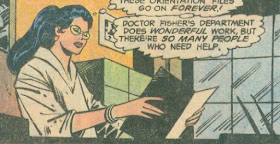Some weeks ago the gentleman beau and I decided to take advantage of the
sizzling merciless soul killing heat summer weather by taking a leisurely canoe ride. Doesn't that sound nice? After slathering ourselves in SPF-275 cream, we piled into a massive van of strangers to take the short ride to our launch point. Since we are both academic types, our conversation turned to online teaching as the van meander its way up the river. The gentleman beau has experience teaching online classes, but I do not. We both agreed nonetheless that online classes seem like bad news if one cares about quality education. We rehearsed the usual
arguments against online courses: They reduce contact between professors and students; they reduce contact between students and students; they are often less rigorous; students are frequently left directionless and rarely put forward as much effort as a brick-and-mortar class; they compete with
World of Warcraft for a student's attention; parents hate them and feel they are a “cheat” by the university. We hardly came up with novel critiques in other words. In that heat, one can’t expect me to be at my best. Just about the time that I began the inevitable claim that online classes were a harbinger of the pending demise of higher education as we know it, the stranger seated in front of me turned with daggers in her eyes. “I did my degree with many on-line classes,” she said curtly, “And they were
really hard.” For a split second I swear that I could feel a slight tinge in a blood vessel in my brain as she attempted to telepathically explode my head.
Now this encounter took me back a bit and not just because I imagined that she hoped to spread my gray matter across the interior of the van. First, I don’t like to out-and-out insult people in public. That’s why I have this blog – I like to insult people virtually. Second, it dawned on me that my stance on online classes belied my status working for an elite institution.
Most professors and parents continue to consider online classes dubious at best (even those who actually teach them). Up until this point, taking a majority of online course work made one’s degree seem like a modern day correspondence course. Only you didn't have to draw the image on the back of the matchbook first. Despite this, two constituent groups really love the online courses: students and administrators. If they had their way, every university would have more of an online presence than a closeted Republican member of the House of Representatives looking to get laid. What? This ain’t a blog for children.
The stark reality is that most colleges and universities are exponentially increasing their online offerings. Cluck-clucking about it as a moral crisis might be easy (and fun too!), but it will not reverse the trend. Those who followed the recent showdown between the President of the University of Virginia and its governing board know that the latter felt the former moved too slowly in promoting online classes. If one of the original “public ivies” is about to cave into this pressure we should acknowledge that online classes are to be with us for quite some time. The impulse is there for a number of reasons. First, online classes are economical. Without needing to find actual classroom space, online classes can be as large as possible while still using just a single faculty member (or, worse, a severely underpaid adjunct). Second, liberal arts colleges and small regional universities are feeling the pressure from for-profit universities. As Republican-controlled legislatures and governors slash budgets to state-supported higher education the need to compete for every tuition dollar is getting greater and greater. Small colleges and universities have no choice but to try and accommodate the impulses that drive students to for-profit institutions.
Anybody who has a penchant for late-night television has seen the ads for these shady institutions promising the ease of a college education without ever having to change out of your pajamas or put down the tub of Ben-and-Jerry’s. Those ads make taking online classes seem like a virtual slumber party complete with intellectual tickle fights. Given what my students show up wearing in my actual class, though, I am left wondering if that is a real difference. It is no wonder that students who have to work or tend to family duties would find such an avenue to a college degree appealing. They simply need the flexibility.
This is no longer a debate about
whether universities should offer online classes. The question now is what type of standards we are going to expect from them. The truth is that there are some students in online classes, like my fellow canoeist, who have the necessary motivation and discipline to make such a degree meaningful. It is also true that online classes continue to have the presumption of being easier than brick-and-mortar classes. This, in part, likely generated the defensiveness to my critiques. Those two things have to be reconciled.
To my mind, humanities professors (including me) have been slow to accept the new reality. This is especially true for those of us who teach at elite institutions that have not started pushing faculty to offer at least some of their classes online – yet. No, I am not advising that we all run out and start posting online classes like a blog troll posts incendiary comments. Rather, I am thinking that we need to cede the question over whether online classes provide good/bad learning environments in favor of considering
how online classes can be taught using good, ethical pedagogies. Even if we are not directly involved in teaching an online class, we are nonetheless training graduate students who are most likely going to land a job at an institution that will expect, if not require, them to apportion part of their teaching effort to online classes. It is our obligation to them and their future students to start to model ethical uses of new teaching technologies.
To that end, we need to first identify and reject the models that favor corporate profit over learning. I was recently horrified when an acquaintance of mine reported that the nearby university where he teaches had purchased “modules” from some unknown company. He, the instructor of the class, had almost no control over the content, assignments, or lectures of the class that he was “teaching.” Instead, he became a glorified tech operator and grader. This, it seems to me, is not why we hire individuals with unique specialities to teach classes.

The reverse must also be guarded against. Academic associations and unions should proactively fight administrative efforts to own online classes generated by faculty members. There is a distinct danger that once a professor pours concerted effort into creating a novel and interesting online class that the material will then be pimped out as the aforementioned “modules’ to other universities. Or, even locally, the adminstration should not be allowed to replace the allegedly expensive professor with a graduate student or underpaid adjunct who simply takes control of the web materials. The content and structure of a course should be considered a type of intellectual property that belongs to the instructor.

On the faculty side, if we are going to venture into new learning technologies, then we also need to bring with us the best practices that we now take for granted in the brick-and-mortar classroom. Over the past twenty years, for instance, flat out lecturing has come to be seen as one of the least valuable means for engaging students. So I am frequently surprised that much of the online content created for classes simply involves videotaped lectures that have been uploaded for students to watch. Trust me, unless those videos include skateboarding kittens or substantive out takes from
Modern Family, the students are barely going to pay attention. Much as we now create exercises and assignments that have students proactively engaged and talking in brick-and-mortar classes, so too should we dump the prerecorded lecture in favor of things that get students engaged online. This might mean that we call upon individuals with programming and technical skills beyond the average humanities professor. One model that intrigued me, for instance, originated in Canada. Students attempted to “solve”some significant historic crimes from the Canadian past. In that instance, the online materials became part of a larger puzzle that students needed to piece together. Along the way, they happened to learn important cultural contexts that informed each crime (racial attitudes, gender assumptions, regional bias). Doesn’t that sound more interesting to you than downloading a 50 minute talking head rambling on about the Articles of Confederation? Creative technological innovations, of course, will require technological and staff investments from universities and colleges. It seems to me, though, given that these courses will ultimately generate more tuition dollars than a brick-and-mortar class, it is the least that they can do.

Don’t let the blog fool you, though. I am remarkably unsavvy when it comes to technology and probably don’t have the best imagination to tackle this problem. Nonetheless, I do think that the time has come when humanities professors have to engage online learning in a serious way. It’s not going anywhere. Our best bet is that we take control of the conversation to show the difference between a quality online learning experience and the hasty for-profit nonsense.

















































